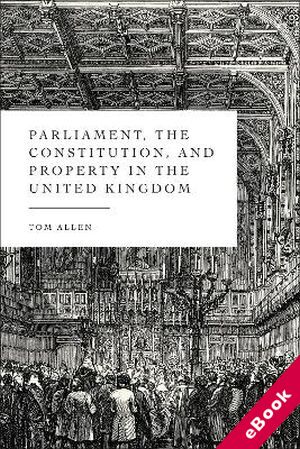
The device(s) you use to access the eBook content must be authorized with an Adobe ID before you download the product otherwise it will fail to register correctly.
For further information see https://www.wildy.com/ebook-formats
Once the order is confirmed an automated e-mail will be sent to you to allow you to download the eBook.
All eBooks are supplied firm sale and cannot be returned. If you believe there is a fault with your eBook then contact us on ebooks@wildy.com and we will help in resolving the issue. This does not affect your statutory rights.
"This book considers whether Parliament recognises a constitutional right to property.
Parliament is supreme: in theory, there is nothing to stop it from passing laws to confiscate property. Nevertheless, MPs often argue that a proposed law would be unconstitutional. What does this mean in a system without a written constitution? What counts as a sound argument about constitutional rights? And what influence do constitutional arguments have on the legislative process?
The book takes a close look at these questions. It reviews legislation and debates from the Middle Ages through to more recent legislation, and covers a wide range of topics, such as land reform, nationalisation, taxation, regulatory laws and retrospection. It also looks at the most recent debates and considers the relevance of constitutional thinking to election manifestos of the main political parties.